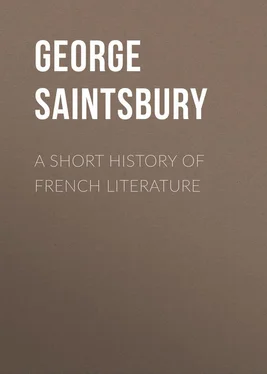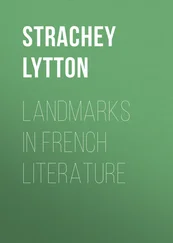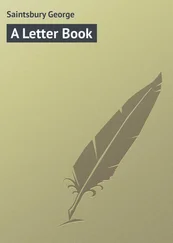George Saintsbury - A Short History of French Literature
Здесь есть возможность читать онлайн «George Saintsbury - A Short History of French Literature» — ознакомительный отрывок электронной книги совершенно бесплатно, а после прочтения отрывка купить полную версию. В некоторых случаях можно слушать аудио, скачать через торрент в формате fb2 и присутствует краткое содержание. ISBN: , Жанр: foreign_prose, на английском языке. Описание произведения, (предисловие) а так же отзывы посетителей доступны на портале библиотеки ЛибКат.
- Название:A Short History of French Literature
- Автор:
- Жанр:
- Год:неизвестен
- ISBN:http://www.gutenberg.org/ebooks/33062
- Рейтинг книги:3 / 5. Голосов: 1
-
Избранное:Добавить в избранное
- Отзывы:
-
Ваша оценка:
- 60
- 1
- 2
- 3
- 4
- 5
A Short History of French Literature: краткое содержание, описание и аннотация
Предлагаем к чтению аннотацию, описание, краткое содержание или предисловие (зависит от того, что написал сам автор книги «A Short History of French Literature»). Если вы не нашли необходимую информацию о книге — напишите в комментариях, мы постараемся отыскать её.
A Short History of French Literature — читать онлайн ознакомительный отрывок
Ниже представлен текст книги, разбитый по страницам. Система сохранения места последней прочитанной страницы, позволяет с удобством читать онлайн бесплатно книгу «A Short History of French Literature», без необходимости каждый раз заново искать на чём Вы остановились. Поставьте закладку, и сможете в любой момент перейти на страницу, на которой закончили чтение.
Интервал:
Закладка:
George Saintsbury
A Short History of French Literature
An attempt to present to students a succinct history of the course of French literature compiled from an examination of that literature itself, and not merely from previous accounts of it is, I believe, a new one in English. There will be observed in the parts of this Short History a considerable difference of method; and as such a difference is not usual in works of the kind, it may be well to state the reasons which have induced me to adopt it. Early French literature is to a great extent anonymous. Moreover, even where it is not, the authors were usually more influenced by certain prevalent styles or forms than by anything else. Into these forms they threw without considerations of congruity whatever they had to say. Nothing, for instance, can be less suitable for historical or scientific disquisition than the octosyllabic metre of a satiric poem. But Jean de Meung and one at least of the authors of Renart le Contrefait 1 1 Note to Third Edition. – M. Gaston Paris expresses some surprise at my saying 'one of the authors,' and attributes both versions to the Troyes clerk (see pp. 52, 53). I can only say that so long as Renart le Contrefait is unpublished, if not longer, such a question is difficult to decide: and that the accepted monograph on the subject (that of Wolf) left on my mind the impression of plural authorship as probable.
do not think of composing prose diatribes. At one moment and place the form of the Chanson de Geste is all-absorbing, at another the form of the Roman d'Aventures, at another the form of the Fabliau. In Book I. I shall therefore proceed by these forms, giving an account of each separately.
After Villon the case changes. Instead of classes of chroniclers, trouvères, jongleurs, we get individual authors of eminence and individuality striking out their own way and saying their own say in the manner not that is fashionable but that seems best to them. During this time, therefore, and especially during that brilliant age of French literature, the sixteenth century, I shall proceed by authors, taking the most remarkable individually, and grouping their followers around them.
From the time of Malherbe the system of schools begins, divided according to subjects. The poet, the dramatist, the historian, have their predecessors, and either intentionally copy them or intentionally innovate upon them. Malherbe and Delille, Corneille and Lemercier, Sarrasin and Rulhière, whatever the difference of merit, stand to one another in a definite relation, and the later writers represent more or less the accepted traditions each of his school. In this part, therefore, I shall proceed by subjects, taking historians, poets, dramatists, etc., together. One difference will be noticed between the third and fourth Books, dealing respectively with the seventeenth and eighteenth centuries. It has seemed unnecessary to allot a special chapter to theological and ecclesiastical writing in the latter, or to scientific writing in the former.
Almost all writers who have attempted literary histories in a small compass have recognised the difficulty, or rather impossibility, of treating contemporary or recent work on the same scale as older authors. In treating, therefore, of literature subsequent to the appearance of the Romantic movement, I shall content myself with giving a rapid sketch of the principal literary developments and their exponents.
There are doubtless objections to this quadripartite arrangement; but it appears to me better suited for the purpose of laying the foundations of an acquaintance with French literature than a more uniform plan.
The space at my disposal does not admit of combining full information as to the literature with elaborate literary comment upon its characteristics, and there can be no doubt that in such a book as this, destined for purposes of education chiefly, the latter must be sacrificed to the former. As an instance of the sacrifice I may refer to Bk. I. Ch. II. There are some forty or fifty Chansons de Gestes in print, all of which save two or three I have read, and almost every one of which presents points on which it would be most interesting to me to comment. But to do this in the limits would be impossible. Nor is it easy to enter upon disputed literary questions, however tempting they may be. On such points as the relations of Northern to Provençal poetry, the origin of the Chansons and the Arthurian romances, the successive versions of Froissart, the authenticity of the last book of Rabelais, it is only possible here to indicate the most probable conclusions. Generally speaking, the scale of treatment will be found to be adjusted to the system of division already stated. In the middle ages, where the importance of the general form surpasses that of the individual practitioners, comparatively small space is given to these individuals, and little attempt is made to follow up the scanty and often conjectural particulars of their lives. In the later books I have endeavoured (departing in this respect from the system of my two former sketches of the subject, the article on 'French Literature' in the ninth edition of the Encyclopædia Britannica and the Primer which has preceded this work in the Clarendon Press Series) to deal more fully with the greater names whose work is most instructive, and as to whom most curiosity is likely to be felt.
If, as seems very likely, these explanations should not content some of my critics, I can only say that the passages which they may miss here would have been far easier and far pleasanter for me to write than the passages which they will here find. This volume attempts to be, not a series of causeries on the literary history of France, but a Short History of French Literature. Two things only I have uniformly aimed at, accuracy as absolute as I could secure, and completeness as thorough as space would allow. In the pursuit of the former object I have thought it well to take no fact or opinion at second-hand where the originals were accessible to me. Manuscript sources I do not pretend to have consulted; but any judgment which is passed in this book may be taken as founded on personal acquaintance with the book or author unless the contrary be stated. Some familiarity with the subject has convinced me that nowhere are opinions of doubtful accuracy more frequently adopted and handed on without enquiry than in the history of literature.
Those who read this book for purposes of study will, it is hoped, be already acquainted with the Primer , which is, in effect, an introduction to it, and which contains what may be called a bird's-eye view of the subject. But, lest the wood should be lost sight of for the trees, notes or interchapters have been inserted between the several books, indicating the general lines of development followed by the great literature which I have attempted to survey. To these I have for the most part confined generalisations as distinct from facts.
I have, I believe, given in the notes a sufficient list of authorities which those who desire to follow up the subject may consult. I have not been indiscriminately lavish in indicating editions of authors, though I believe that full information will be found as to those necessary for a scholarly working knowledge of French literature. I had originally hoped to illustrate the whole book with extracts; but I discovered that such a course would either swell it to an undesirable bulk, or else would provide passages too short and too few to be of much use. I have therefore confined the extracts to the mediaeval period, which can be illustrated by selections of moderate length, and in which such illustration, from the general resemblance between the individuals of each class, and the comparative rarity of the original texts, is specially desirable. To avoid the serious drawback of the difference of principle on which old French reprints have been constructed, as many of these extracts as possible have been printed from Herr Karl Bartsch's admirable Chrestomathie . But in cases where extracts were either not to be found there, or were not, in my judgment, sufficiently characteristic, I have departed from this plan. The illustration, by extracts, of the later literature, which requires more space, has been reserved for a separate volume.
Читать дальшеИнтервал:
Закладка:
Похожие книги на «A Short History of French Literature»
Представляем Вашему вниманию похожие книги на «A Short History of French Literature» списком для выбора. Мы отобрали схожую по названию и смыслу литературу в надежде предоставить читателям больше вариантов отыскать новые, интересные, ещё непрочитанные произведения.
Обсуждение, отзывы о книге «A Short History of French Literature» и просто собственные мнения читателей. Оставьте ваши комментарии, напишите, что Вы думаете о произведении, его смысле или главных героях. Укажите что конкретно понравилось, а что нет, и почему Вы так считаете.












